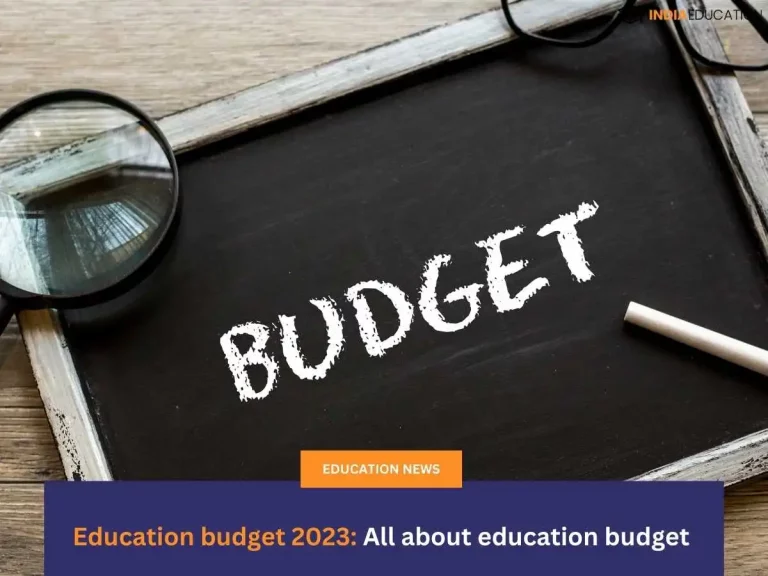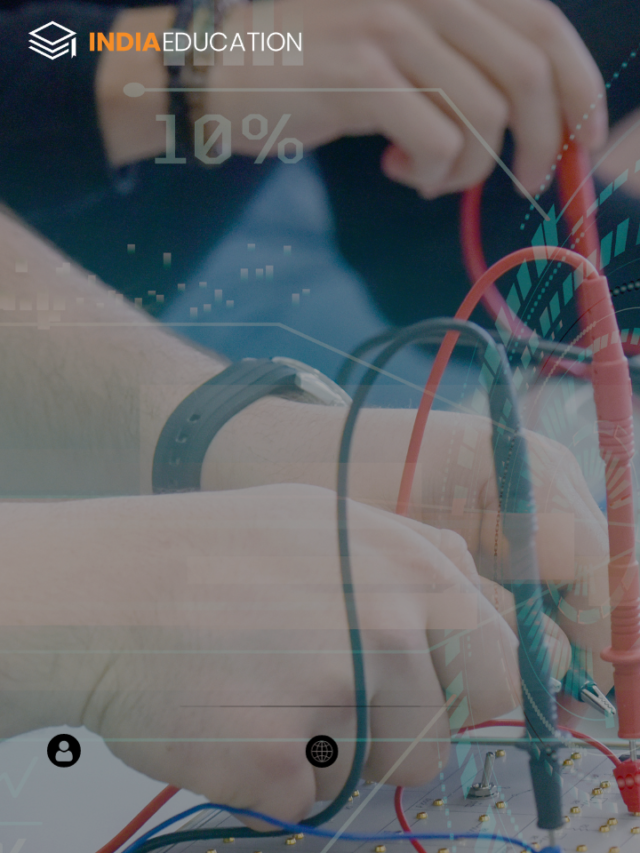
Education budget 2023: All about education budget
Satish Kumar
Sitharaman boosted the overall financial allocation for the education sector from Rs 93,224 crore (Budget estimate) in 2021–2022 to Rs 1.04 lakh crore in the previous year’s budget

Education budget 2023: Today, the Union Budget will be presented to Parliament by Nirmala Sitharaman, the Union Finance Minister. Since she became the nation’s finance minister, this will be her fifth budget. Before the Lok Sabha elections next year, this is the ruling government’s final full-fledged budget.

Sitharaman boosted the overall financial allocation for the education sector from Rs 93,224 crore (Budget estimate) in 2021–2022 to Rs 1.04 lakh crore in previous year’s budget. To make up for learning losses brought on by the coronavirus pandemic, the minister had placed increased emphasis on digital learning methods.
However, the central allocation for the PM Poshan scheme (formerly known as the mid-day meal scheme) decreased from Rs 11,500 crore in 2021–2022 to Rs 10,233 crore in 2022–2023 The complete amount allotted for the scheme could not be used during the current fiscal year due to extended school closures, as evidenced by the amended allocation for 2021–22, which was likewise Rs 10,233 crore.
Latest Infrastructure
The highest on the list of requirements for the education industry is educational infrastructure. The Government of India is expected by the stakeholders to establish new boards and universities with campuses spread out across the nation. The establishment of additional institutes, colleges, and schools would significantly strengthen the regional educational institutions.
Emphasis on New Education Policy
The Government of India’s New Education Policy (NEP) is quite ambitious, and to close the gaps in the market, a solution-oriented strategy is required. One of the objectives of the strategy is to ensure that everyone has access to education through the program called Education for All. Special budgetary allotments and tax breaks would be necessary to give NEP the boost it requires in order to be implemented effectively.
Technological Up gradation
Technology is currently the primary function that drives education, and it is growing and improving every day. The technological requirements of the industry must be fully satisfied, and software skilling in particular needs to be given specific attention. In order to meet these technical requirements, the education sector has also made a particular budgetary request.
Technological Transformation of Pedagogy
The delivery of educational courses, whether at the junior or college and university levels, has undergone a total redesign in the last few years. Smart classrooms and digital learning are being stressed more and more. The technology for running classes has now advanced to the next level, utilizing machine learning and artificial intelligence (AI) methods. Special budgetary resources are needed to upgrade the teachers’ skills and the infrastructure for software, technology, and information technology (IT) because education delivery methods are always evolving.
Innovation, Incubation, and Entrepreneurship Development
Today’s students think far differently than they formerly did, and more graduates now prefer starting their own enterprises over taking jobs elsewhere. The government should concentrate on helping students develop entrepreneurial abilities in order to keep up with the recent growth in startup companies.
The Startup India program was launched by the Indian government a few years ago, but more effort is still needed for it to be successful. Additionally, the establishment and operation of the educational institutions’ incubation and innovation centers require budgetary support.
Capital Fund, Seed Fund Accelerator Programs
There is an enormous need to channel the startup finance function, much like there are lines for incubator facilities. This would help the economy as well as bolster the confidence of aspiring businesspeople. Educational institutions may administer the accelerator programs in collaboration with donors/funding agencies. To make it successful and encourage upcoming Indian businesses, this needs distinct designation in the Union Budget.
Tax Exemption on Research
Any new technology, product, or service must undergo extensive research before to debut in order to be successful. The only thing the government can do to advance prospects for the future, which will affect millions of people’s daily lives as well as the education sector, is to exempt academic research from taxes.
All of these requests must be taken into account by the government in order to create a better and more beneficial educational system for the country.
Latest News
People Reading Now

CBSE Compartment Result 2023 OUT: Click For Direct Link



CSAB 2023: Special Round Registration Begins Today







